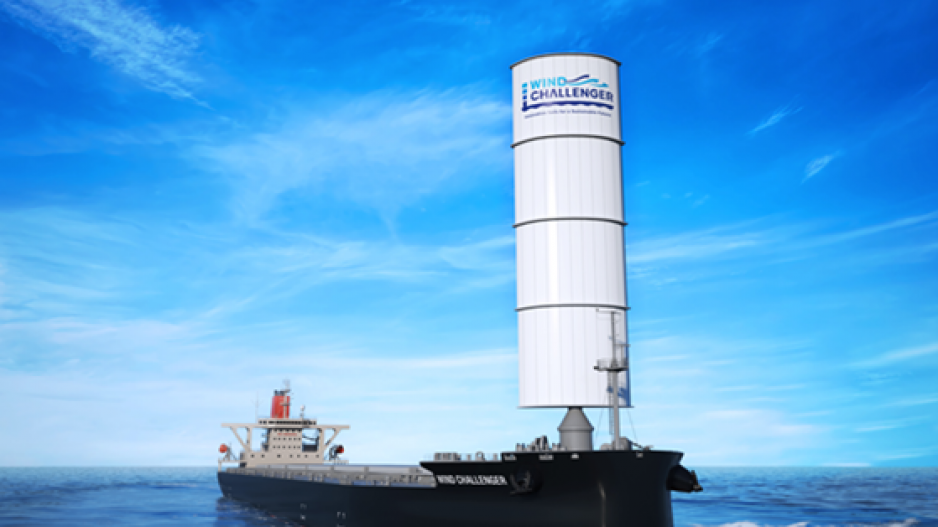A Japanese bulk shipping company and a British utility that owns several wood pellet plants in B.C. and Alberta have partnered on a plan to launch the world’s first modern drybulk carrier to use wind power to reduce fuel use and emissions.
MOL Drybulk Ltd., a subsidiary of Mitsui O.S.K. Lines Ltd., and Drax Plc (LON:DRX) announced this week plans to run a wind-assist bulk carrier between B.C. and Japan, starting around 2025.
It would carry wood pellets produced in Western Canada to Japan, where they are burned as an alterantive to coal to produce power.
Unlike the canvas sails of yesteryear, the Wind Challenger technology developed by MOL Drybulk would use hard, lightweight retractable sails. It will also use big data to analyze weather and sea conditions to choose routes that optimize wind energy.
The first ship to be outfitted with MOL Drybulk’s Wind Challenger sails would use a single sail, and would operate on the B.C. to Japan route. Later iterations could see the addition of rotor sails, or multiple hard sails.
On the inaugural B.C. to Japan route, it’s estimated a single hard sail could reduce emissions by up to 10%. Another 10% might be achieved with the addition of rotor sails, according to Drax.
Shipping produces about 2.5% of global emissions. For many companies trying to reduce their own emissions intensity, transportation represents scope 3 emissions over which they have less control.
“MOL Drybulk’s hard sail technology has the potential to transform the maritime industry, cutting emissions and fuel costs and supporting global efforts to address the climate crisis,” said Drax CEO Will Gardiner.
“MOL has been working with our partners to develop the Wind Challenger technology for over a decade, and it’s great to see this become a reality,” said MOL Drybulk president Kazuhiko Kikuchi.
“We are extremely excited to work together with an innovative company such as Drax. This partnership will help us have a positive impact on how wood pellets and other cargoes are transported across the world.”
Drax Plc owns seven wood pellet mills in B.C. and two in Alberta. Drax’s thermal power plant in North Yorkshire used to burn coal, which has been phased out with wood pellets.
Biomass is considered carbon neutral, since the emissions produced through combustion are eventually captured again when trees or other plants regrow.
Drax is also working on a negative emissions plan that would see CO2 emissions from its power plant captured and sequestered.




